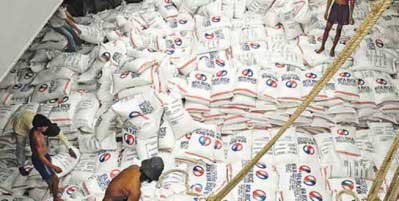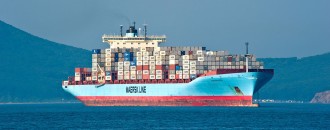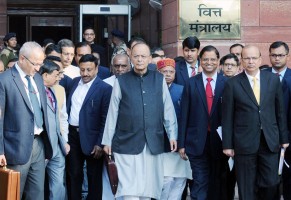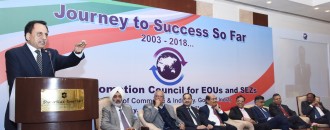
Markets, not governments, should rule international rice prices: TREA
The Dollar Business Bureau | @TheDollarBiz  Rice exporters have won the contest against government intervention and populist policies in Thailand. No wonder, the country notched up two points to fetch the 26th rank in World Bank’s latest Ease of Doing Business (for the year ending May 31, 2014) despite the political turmoil it has seen in the last few years. Interestingly, in the “Trading Across Borders” sub-index, Thailand has dropped three places to 36. And the country’s rice support programme, which was discontinued earlier this year by the caretaker government, could be one of the reasons. The Thai government under Yingluck Shinawatra started the ambitious rice pledging program in 2011 as a part of its electoral promise. Against the will of rice exporters, the government bought rice from farmers at prices double the prevailing market rates. Thailand had been the world’s main rice supplier for decades and the move aimed to improve farmer income in Thailand. It was also hoped that the trend would catch up in the remaining rice exporting countries such as Vietnam which has struggled for decades to improve returns for its rice farmers. However, India played the spoilsport. In late 2011, the country lifted a three-year ban on rice exports and started exporting record quantities of rice (around 25% of global annual rice trade of around 40 million tonnes) in each year since then. Emboldened by the changing market matrix, most of the Thai exporters either stopped purchases from Thai farmers or switched to re-exporting rice from countries such as Cambodia and Vietnam. This hurt the country’s rice sector. While Thailand lost the crown as the world’s largest rice exporter in 2012, a title it had held for over 25 years, rice production increased and stocks started swelling in government warehouses. According to reports, there are about 18 million tonnes of rice with the government now, of which only 2 million tonnes are of export quality. Yingluck Shinawatra was ousted from office earlier this year, and mismanagement of the rice programme will be a key issue in the National Legislative Assembly (NLA) meeting scheduled on November 12, 2014 to discuss the impeachment of the former PM.
Rice exporters have won the contest against government intervention and populist policies in Thailand. No wonder, the country notched up two points to fetch the 26th rank in World Bank’s latest Ease of Doing Business (for the year ending May 31, 2014) despite the political turmoil it has seen in the last few years. Interestingly, in the “Trading Across Borders” sub-index, Thailand has dropped three places to 36. And the country’s rice support programme, which was discontinued earlier this year by the caretaker government, could be one of the reasons. The Thai government under Yingluck Shinawatra started the ambitious rice pledging program in 2011 as a part of its electoral promise. Against the will of rice exporters, the government bought rice from farmers at prices double the prevailing market rates. Thailand had been the world’s main rice supplier for decades and the move aimed to improve farmer income in Thailand. It was also hoped that the trend would catch up in the remaining rice exporting countries such as Vietnam which has struggled for decades to improve returns for its rice farmers. However, India played the spoilsport. In late 2011, the country lifted a three-year ban on rice exports and started exporting record quantities of rice (around 25% of global annual rice trade of around 40 million tonnes) in each year since then. Emboldened by the changing market matrix, most of the Thai exporters either stopped purchases from Thai farmers or switched to re-exporting rice from countries such as Cambodia and Vietnam. This hurt the country’s rice sector. While Thailand lost the crown as the world’s largest rice exporter in 2012, a title it had held for over 25 years, rice production increased and stocks started swelling in government warehouses. According to reports, there are about 18 million tonnes of rice with the government now, of which only 2 million tonnes are of export quality. Yingluck Shinawatra was ousted from office earlier this year, and mismanagement of the rice programme will be a key issue in the National Legislative Assembly (NLA) meeting scheduled on November 12, 2014 to discuss the impeachment of the former PM.
 Source - USDA
Source - USDAMeanwhile, Thailand is trying to regain its top rice exporter status (Thai rice exports of around 4.1 million tonnes during January 1 - October 12, 2014 are already up 57% y-o-y). This week, the country hosted the 4th International Rice Congress (IRC2014) on the theme “Rice for the World” in Bangkok. This is where rice exporters came out in the open against government intervention. Citing the Thailand example as a bitter lesson in government intervention in commodity pricing, Vichai Sriprasert, an Honorary President of the Thai Rice Exporters Association (TREA) said that governments should avoid dictating market prices or incur heavy losses in the long run. He said Thailand had been the world's largest rice exporter for a long time partly because of the free trade policy initiated by King Rama IV 150 years ago, but this changed with the rice pledging programme. He added that farmers were not told that increasing prices artificially meant low sales, high stocks and a lack of funds to run such programmes. Vichai Sriprasert said, “Rice prices should be left alone in the market. If the prices are high, no one will buy it, and if it’s low, no one will sell it. Let markets behave the way they should. Let the market discover the right price where everyone agrees to buy and sell.” According to Sriprasert, land consolidation is a better approach to improve farmer income. But as we all know, it is easier said than done, particularly in Asian countries. And it is also ironical to note that government support played a part in helping India become the world's largest rice exporter in the last few years.
This article was published on November 1, 2014.






 to success.
to success.